
Following the recent success of its Chris Killip exhibition, Baltic has returned to photography with a brace of exhibitions showing the work of female photographers.
Joanne Coates, recipient of this year’s Vasseur Baltic Artists’ Award, shows on Level 2 and we report separately on her exhibition, Middle of Somewhere.
But her exploration of young women’s lives in rural communities began with a visit to the archive of Franki Raffles who died in 1994 and whose work is displayed on the floor above.
The name, even if it doesn’t ring a bell, leaps out at you. Could any novelist come up with a better one for a leading character?
But Franki was a real person who achieved a lot before her tragically early death at the age of 39.
The exhibition features swathes of photographs resulting from various projects and campaigns, and from her travels to countries including China, Tibet and the Soviet Union just before its collapse.
- Read more: Artworks Rooted in local landscapes
- Read more: My life through a lens: Maria Maza
Mostly they show women at work but there are also the powerful photos she staged for Zero Tolerance, a ground-breaking campaign highlighting male violence against women.
With her camera, Franki sought to make unseen aspects of women’s lives seen.
Ironically, though, she drifted out of sight after her death in 1994 following complications in giving birth to her twin daughters.
Dr Alistair Scott, helping to supervise the hanging of the Baltic exhibition, recalled: “We met at university and were friends, and I was aware of this huge range of projects she’d undertaken.
“I used to work in television but when I pivoted to working in a university I found myself in charge of the photography department at Edinburgh Napier.
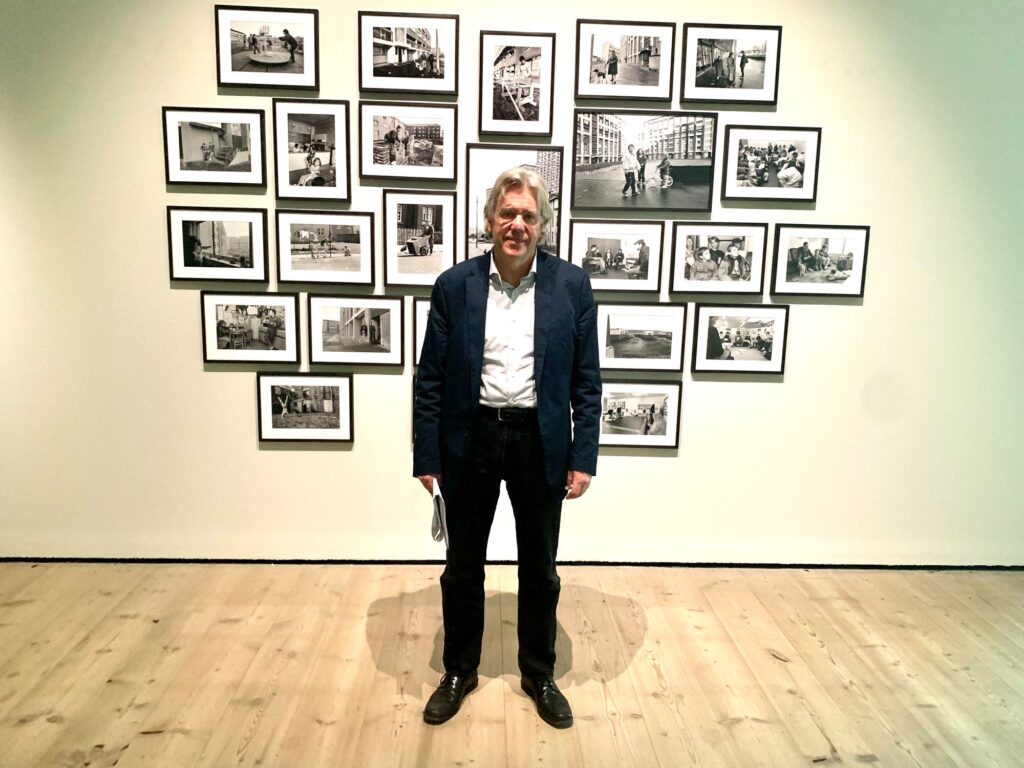
“It was then I became aware that Franki wasn’t even a footnote in photography in this country. I thought that had to change.”
That was about 10 years ago.
Alistair contacted Franki’s partner, Sandy — Franki had come out as gay in 1983, four years after her first daughter, Anna, was born — to see what had happened to the stuff she’d left behind.
“Everything (negatives, diaries etc) was carefully stored in a cupboard but Sandy didn’t know what to do with it,” recalled Alistair.
“Gradually we looked through all the material. I did a research project with some photography students and we selected images from the various projects.
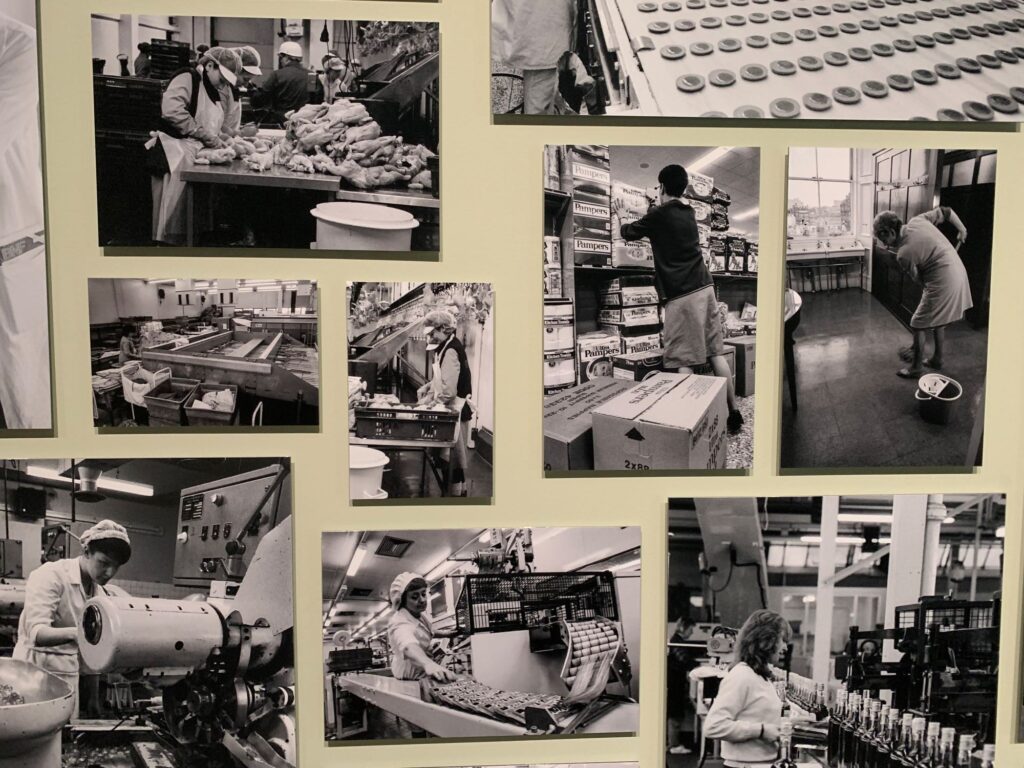
“Franki and I had been students at St Andrews and they had a photographic archive, so I went and talked to the curator and then he came to meet Sandy and the family.”
As a result, the University of St Andrews now holds the Franki Raffles Photography Collection.
Baltic’s exhibition, Franki Raffles: Photography, Activism, Campaign Works, represents the high water mark of a planned revival.
Billed as the “first ever major retrospective exhibition”, it focuses on the last 10 years of Franki’s life when she produced some 40,000 images — and all using print rather than digital technology.
You will learn that Franki was born in Salford in 1955 but spent the latter part of her childhood in London. She went to St Andrews in 1973 to study philosophy.
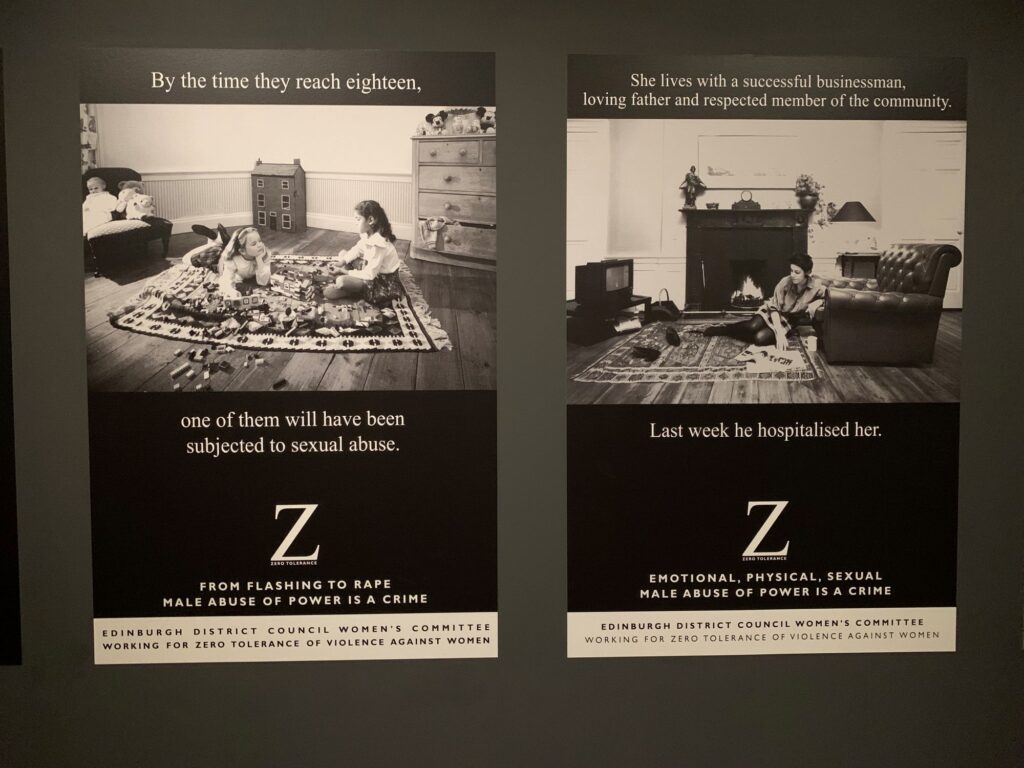
After graduating she spent time on the Isle of Lewis, in the Outer Hebrides, renovating a derelict farmhouse and taking photos of other women working.
It was there, according to Baltic, that she “began to view photography as a tool of social activism”.
Settling afterwards in Edinburgh, she established herself as a freelance photographer, bringing “an activist feminist approach to the tradition of social documentary photography”.
You will see photos of women doing all sorts of mostly menial and poorly paid jobs. Many were taken as part of To Let You Understand, an Edinburgh Council-supported project to combat gender inequality.
Another friend of Franki was Sarah Munro, director of Baltic since 2015.
See how the stars align!
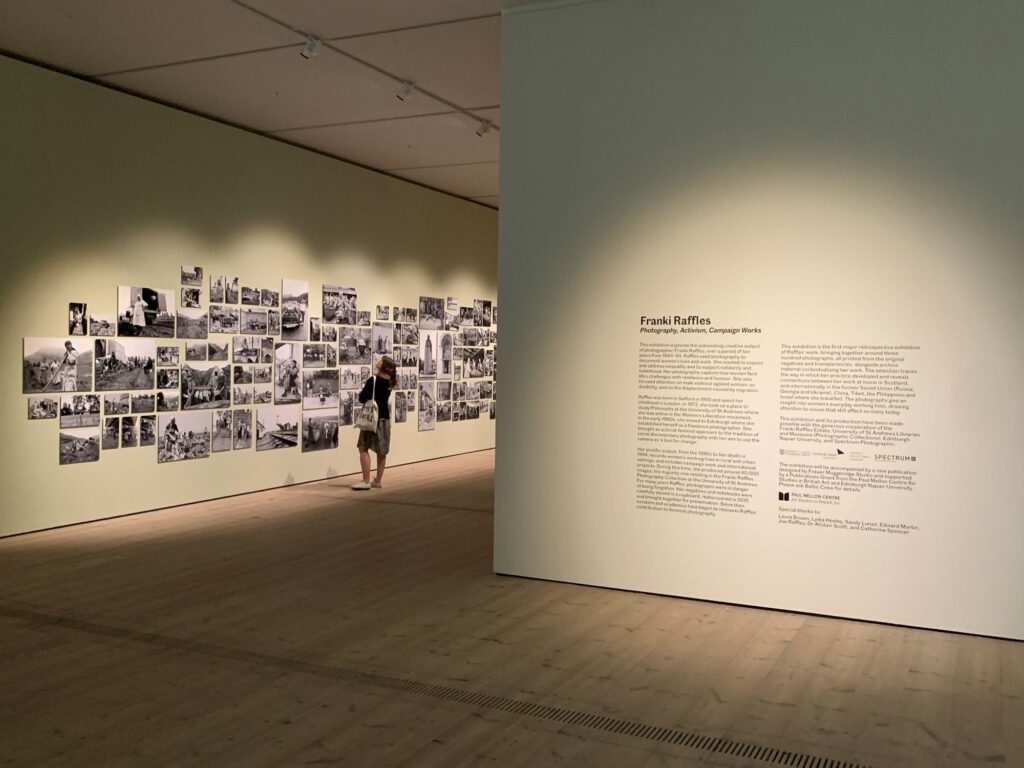
Sarah, remembering their first meeting, said she had been working for an organisation called Artlink Edinburgh — her first job in the arts — when she was advised to meet Franki and engaged her to work on a photography project for people with disabilities.
“There was a 10-year age gap between us but we had a shared outlook. She became this brilliant mentor but we also became best friends.”
She had planned for “quite a while” to mount an exhibition of Franki’s work.
“We knew the work was important and there’s really nobody who has replaced her.
“I had thought about it before lockdown but the first contact I had with the family was two years ago. Sometimes the right moment comes and I think this is it.”
- Read more: History and a wee dram – the perfect blend
- Read more: Doctor’s mission driven by father’s death
You will see that many places Frankie visited, often with a child in tow, are back in the news. The same can be said of the issues she espoused, such as domestic violence and the visibility of women in history.
Alistair Scott remembered Franki giving him a copy of a book by Sheila Rowbotham, Hidden From History, and there’s a copy in the exhibition among supporting material.
You get no sense of there having been any iconic Franki images because it seems that wasn’t her style or motivation.
There are just lots of photos, mostly of women working and sometimes with children, telling the stories Franki wanted to tell. Women in this context are far from hidden.
“These photos,” said Sarah, “are about interconnection. They’re about making visible women who are often not visible because they’ve no power or representation.
“Franki’s thing was always connection and solidarity and what people have in common despite geographical or political difference.”
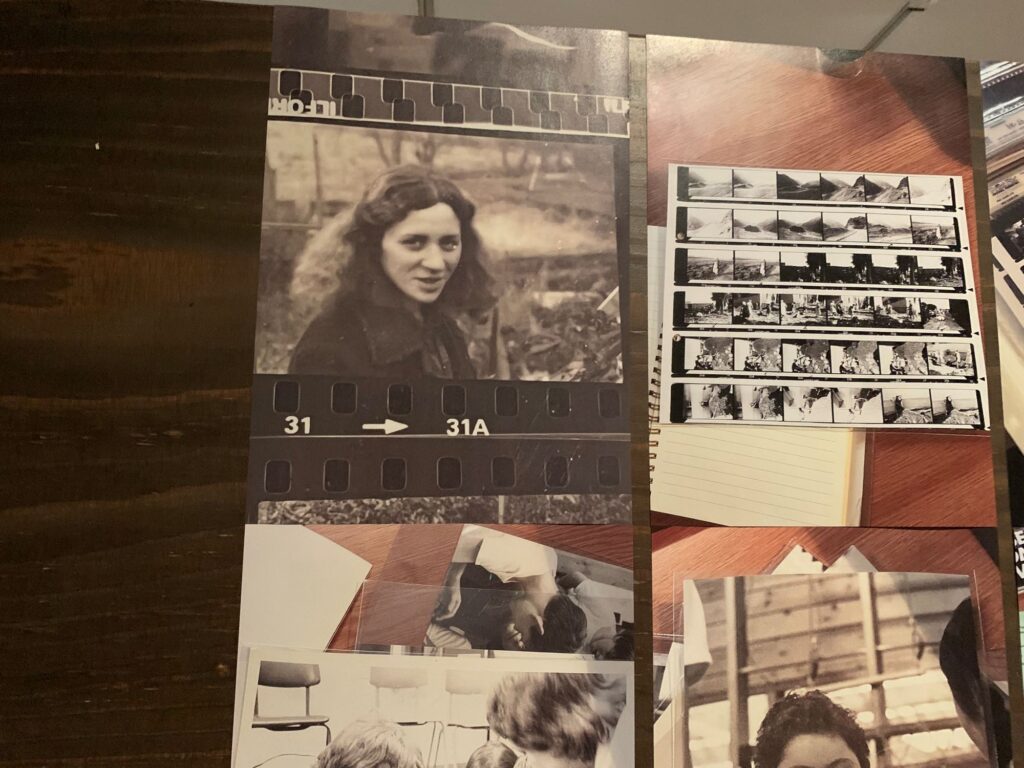
And despite the headline on this piece, there are no frames. “Franki saw her practice in social documentary more than fine art and we wanted to honour that,” said Sarah.
“You’ve got to feel these women in the room.”
The twins who never knew their mother will turn 30 in December.
Franki’s son Joe, just three when she died, is remembered by Sarah as the toddler accompanying his mum when they first worked together.
Reunited, they visited the St Andrews archive together and he was at Baltic helping with the exhibition hang.
“It’s been beautiful,” said Sarah. “I kept him in the loop because I wanted him to be part of the process.”
Franki Raffles: Photography, Activism, Campaign Works is at Baltic until November 17.











